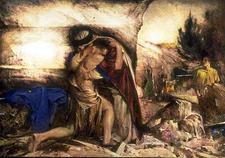Pages
About Me
Links
Tags
PERSONAL 520
SPIRITUAL 416
LDS 312
BOOK OF MORMON 237
SCRIPTURES 154
STUDIO-JOURNEY 129
RELIGION 112
LINUX 79
COMPUTERS 65
LIFE 60
GENERAL CONFERENCE 46
GENTOO 39
MISCELLANEOUS 37
MUSIC 37
PROGRAMMING 33
CARS 29
MICROSOFT 23
FAMILY 23
AUDIO 21
I LOVE MY JOURNAL 18
FUN 15
CHILDREN 12
CURRENT EVENTS 10
NATURE'S WAY 10
VIDEO 9
DRM 9
CONEXM 7
BABBLINGS 7
PROVO CITY CENTER TEMPLE 6
FRIENDS 6
HEROD THE FINK 5
GAMES 5
COMPUTER HARDWARE 5
DRUMS 4
HAND OF GOD 3
ADVERSITY 3
KDENLIVE 3
AUDIO HARDWARE 3
GENERAL INSANITY 3
STUDIO 3
THANKS4GIVING 2
CATS 2
MY JOURNAL 1
POETRY 1
FOREVERGREEN 1
EVERYDAY THOUGHTS 1
GOSPEL 1
PARENTING 1
YOUTH CONFERENCE 1
CHURCH NOTES 1
POLITICS 1
RSS Feed
Tue - Aug 28, 2007 : 09:25 am
grateful
Forgiveness
 At church this Sunday, we talked about the topic of "forgiveness" in priesthood class and I've gotta say, holy cow - I love that class.
At church this Sunday, we talked about the topic of "forgiveness" in priesthood class and I've gotta say, holy cow - I love that class.Ya know... I often wonder what makes a good class, and what makes a "not-so-great" class as far as gospel doctrine or priesthood or relief society goes. Learning about religion can be quite the experience, as it is a deeply personal and deeply rooted subject for most people on earth. So, when learning about it, I guess people can become pretty empassioned about what they think is right and wrong... Anyway...
I wonder now what makes the classroom under these circumstances, a good place or a bad place to learn and feel uplifted. Well... A couple of things:
- God has instituted a method of teaching whereby chaos can be limited if not completely taken care of. D&C 88:122
- Also, it is extremely important that people are both teaching by the spirit and learning by the spirit. D&C 50:13-24
So, if the class is organized and had a teacher, and everyone is respectful, taking turns, etc... and the spirit is causing both the teaching and the learning - I believe good things can happen.
but....
I personally have been in classes where all of the above is present, and I am still bored stiff. So... What makes the difference?
I believe that in teaching, there has to be an element of personality. I'm speaking of two aspects of personality...
- Personality as in, the teacher has one. Like.... Someone who doesn't stand up there and quote scripture all day, but rather speaks enthusiastically, knowledgeably, and energetically.
- The second aspect of personality I'm speaking of is a human element which all of us both are scared of and in need of. The need to connect with other human beings.
If I'm teaching a lesson, I better be prepared to tell stories and experiences which connect with people in the class. The more personal (appropriately so), the better. I mean...
How many of us have "spiritual experiences" which we keep to ourselves? Yes, there are those which are so personal, they reach levels of being sacred, and we should never share those. But what about those experiences which taught us a memorable lesson which has stayed with us throughout our lives? Are we doing good keeping those to ourselves? What if we learned a lesson on how much the Lord loves us, and we're teaching a lesson on Christ's love. Would it be appropriate to keep that experience to ourselves? I actually tend to think that would be borderline sinful, simply because we'd be keeping an extraordinary teaching experience selfishly to ourselves, while we may influence someone else as much as we were influenced by the original experience.
I don't know. Maybe I'm babbling.
Anyway... The original title of this post was "Forgiveness" because I anticipated talking about last week's lesson. How about we start that now? Good idea.
All it takes is 2 or 3 people in a classroom who are full of the spirit, energized by it, and able to communicate what they feel effectively in order for a classroom to catch on spiritual fire. Last week was a great example of this.
The teacher was talking about forgiveness and asked great questions. All during the class, I was pondering what forgiveness really was, and why it was so important. Thoughts came to me, and I eventually formed an idea which I had never formed before. This is the idea:
Forgiveness is the antithesis of seeking revenge. When we seek revenge, we in effect try to become a judge of that person, wanting to exact justice for some deed they have done which caused us offense or pain. In the Gospel, God is judge, and he has made it overly clear that justice is *his*. We also in effect, try to become a mediator for that person - and act as if the atonement is not available to them anymore.
This was quite cool, and I believe it to be true.
The Gospel tells us to forgive *everyone* for *everything*. There is no "and", "if", or "but" in there - we are required to forgive all men.
And thus it is.
Anyway... I found that inspiration highly interesting, as I hope you do, as well.

